Key Takeaways
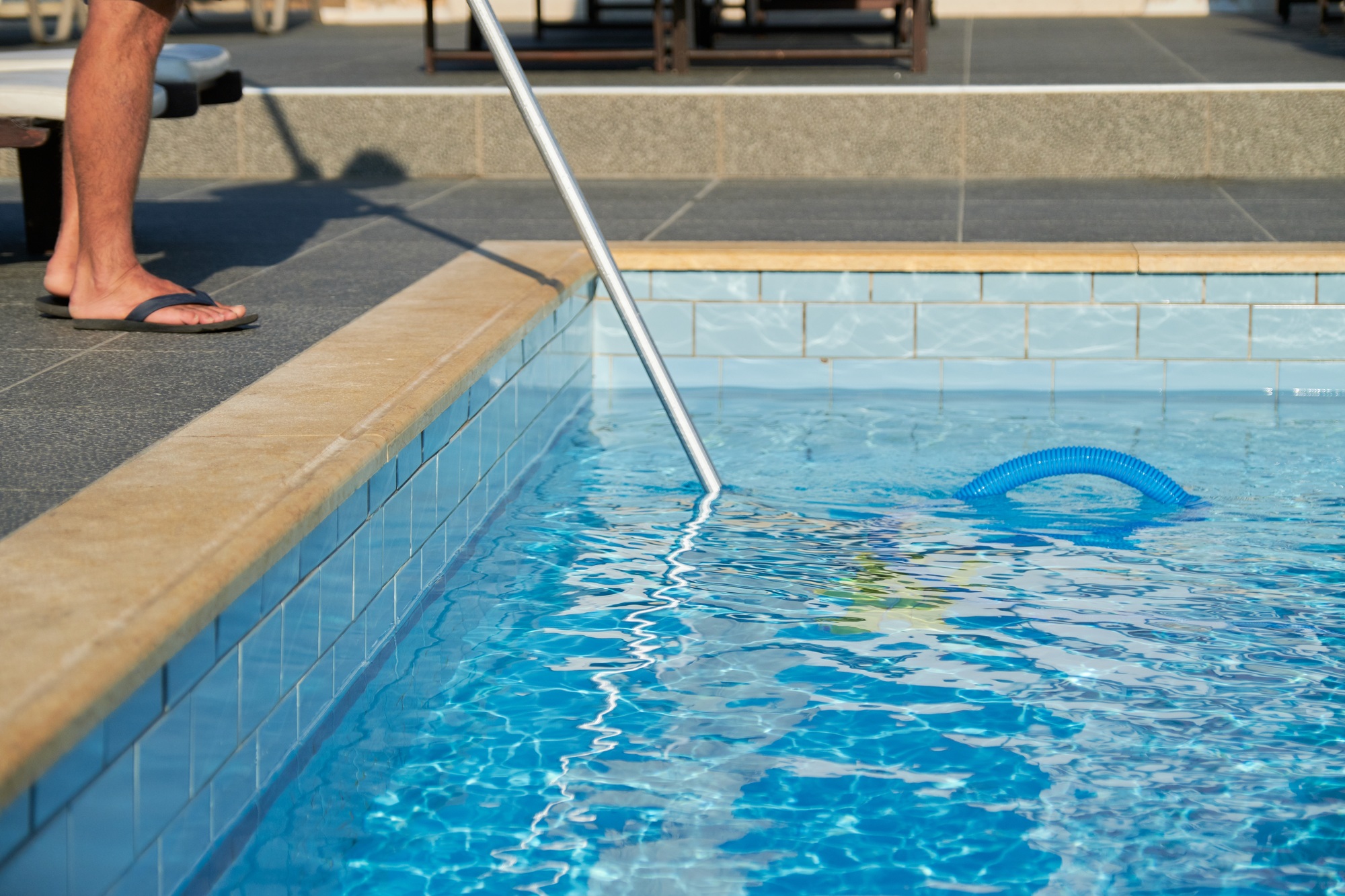
- Growing Demand: The swimming pool cleaning industry is expanding, driven by an increase in residential and commercial pools, creating ample opportunities for new businesses.
- Service Offerings: Key services include regular maintenance, one-time cleanings, repairs, and inspections, which can be tailored to meet customer needs.
- Essential Equipment: Invest in essential tools like skimmer nets, brushes, vacuums, and water testing kits to ensure efficient service and high customer satisfaction.
- Legal Compliance: Understand local licensing requirements and obtain necessary insurance coverage to protect your business and comply with regulations.
- Market Research: Identify and segment your target market effectively to develop tailored marketing strategies that resonate with potential customers.
- Pricing Strategy: Conduct competitive pricing analysis and consider discount packages to attract new clients and encourage repeat business for sustained growth.
Diving into the world of entrepreneurship can be both exciting and rewarding, especially when you consider starting a swimming pool cleaning business. With the growing number of pools in residential and commercial properties, the demand for reliable pool maintenance is skyrocketing. If you love working outdoors and enjoy a flexible schedule, this could be the perfect venture for you.
Understanding the Swimming Pool Cleaning Industry

Understanding the swimming pool cleaning industry helps you navigate this small business startup effectively. The demand for reliable pool maintenance continues to grow as more homeowners and businesses invest in pools.
Market Overview
The swimming pool cleaning market has seen significant expansion, with statistics indicating over 10.4 million residential pools and an increasing number of commercial pools in the U.S. this year. Seasonal trends influence demand, peaking during warm months. Competition varies by region, so researching your local market helps identify opportunities and tailor services. Additionally, partnering with pool supply retailers can enhance your business network.
Types of Services Offered
Various services cater to different customer needs. Common options include:
- Regular Maintenance: Include cleaning, chemical balancing, and equipment checks.
- One-Time Cleanings: Offer deep cleaning services for clients who need a thorough clean before a big event or pool opening.
- Repairs: Provide maintenance or repairs for pool equipment like pumps, filters, or heaters.
- Swimming Pool Inspections: Perform inspections for homebuyers or sellers, providing them with valuable information about the pool’s condition.
You can customize your service offerings based on your expertise and your specific market’s needs for a successful startup.
Essential Equipment and Supplies

To start a swimming pool cleaning business, it’s crucial to gather the right equipment and supplies. This ensures efficient operation and high-quality service for your clients.
Basic Cleaning Tools
Invest in essential cleaning tools to enhance your service offerings. These tools enable you to maintain pool cleanliness effectively:
- Pool Skimmer Net: Use this tool to quickly remove leaves, debris, and floating objects from the pool surface.
- Pool Brush: This tool is vital for scrubbing the pool walls, steps, and surfaces. Opt for stainless steel brushes for gunite pools for optimal results.
- Pool Vacuum: A reliable vacuum is necessary for cleaning the pool floor. Choose from various options including manual battery units, robotic models, suction-side, and pressure-side cleaners.
- Telescopic Pole: This pole allows you to attach different cleaning tools such as nets, brushes, and vacuums, providing versatility for your tasks.
Water Testing Kits
Water quality is a significant aspect of pool maintenance. Effective water testing kits help ensure the safety and cleanliness of the pool. Be sure to include these:
- Chemical Testing Kits: These kits allow you to test pH levels, chlorine levels, and alkalinity. Regular testing prevents chemical imbalances.
- Test Strips: Quick and easy to use, these strips provide immediate results on water quality. They simplify water testing for routine maintenance.
- Digital Meters: For precise measurements, consider investing in digital meters. They offer detailed readings to maintain optimal water balance and ensure a safe swimming environment.
Having the right equipment and supplies not only supports your business operations but also establishes trust with your clients, enhancing customer satisfaction and loyalty.
Legal Considerations
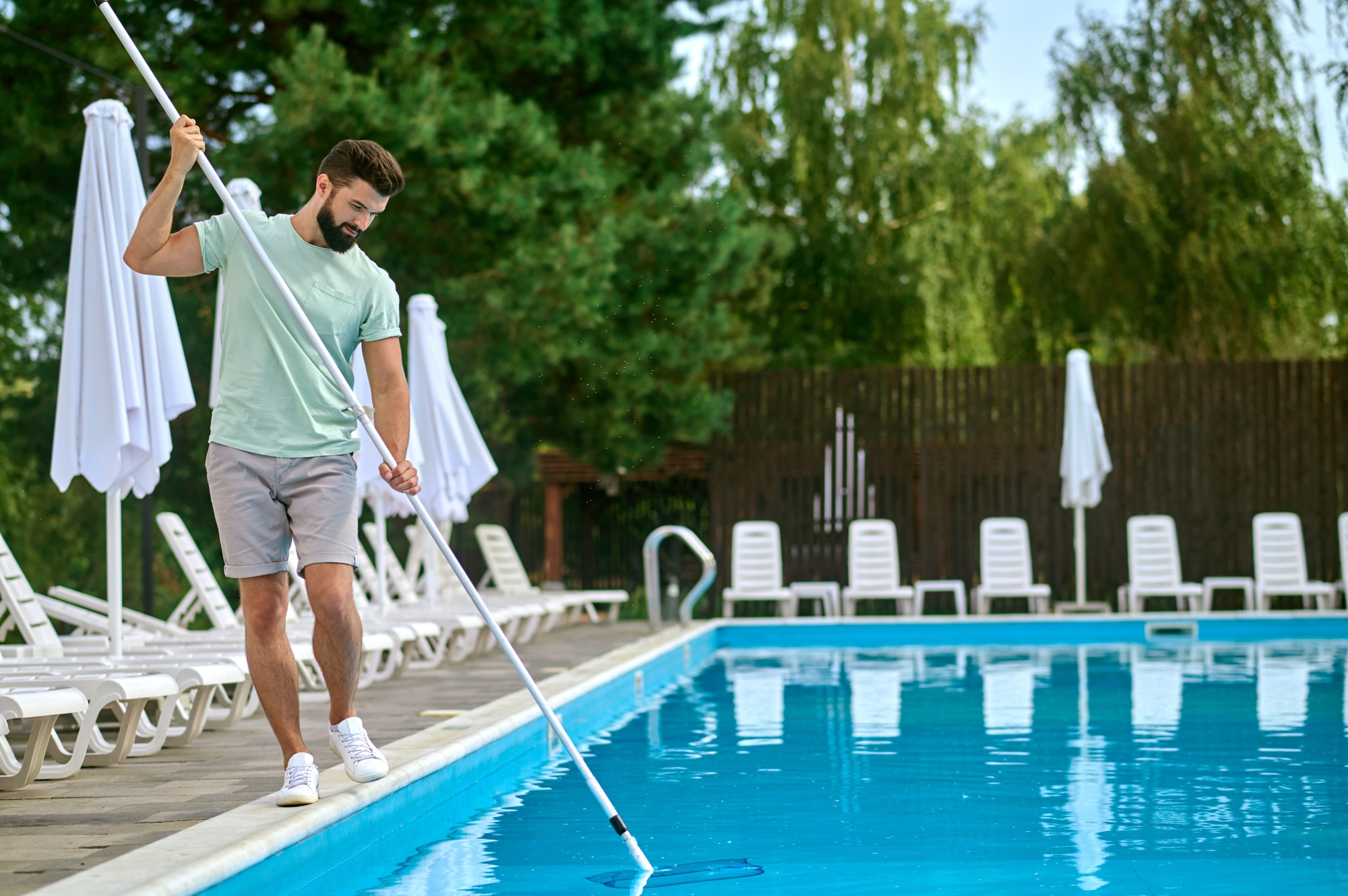
Starting a swimming pool cleaning business requires careful attention to legal aspects. Understanding business licensing requirements and insurance needs ensures your startup operates within the law and protects your assets.
Business Licensing Requirements
You must comply with local and state licensing regulations when starting a small business. These requirements vary significantly based on your location. Research your area’s specific licensing needs, which may include obtaining a business license or contractor’s license. You’ll typically need to choose a business structure, like a Sole Proprietorship or LLC, and secure an Employer Identification Number (EIN) from the IRS to facilitate tax purposes.
Insurance and Liability
Obtaining adequate insurance coverage is crucial for your pool cleaning business. Liability insurance protects against potential claims from clients due to property damage or injuries that may occur while on the job. Consider investing in commercial auto insurance if you use a vehicle for transporting equipment. General liability insurance should cover basic risks, but consult an insurance agent to assess your specific needs in alignment with your service offerings.
Building Your Customer Base
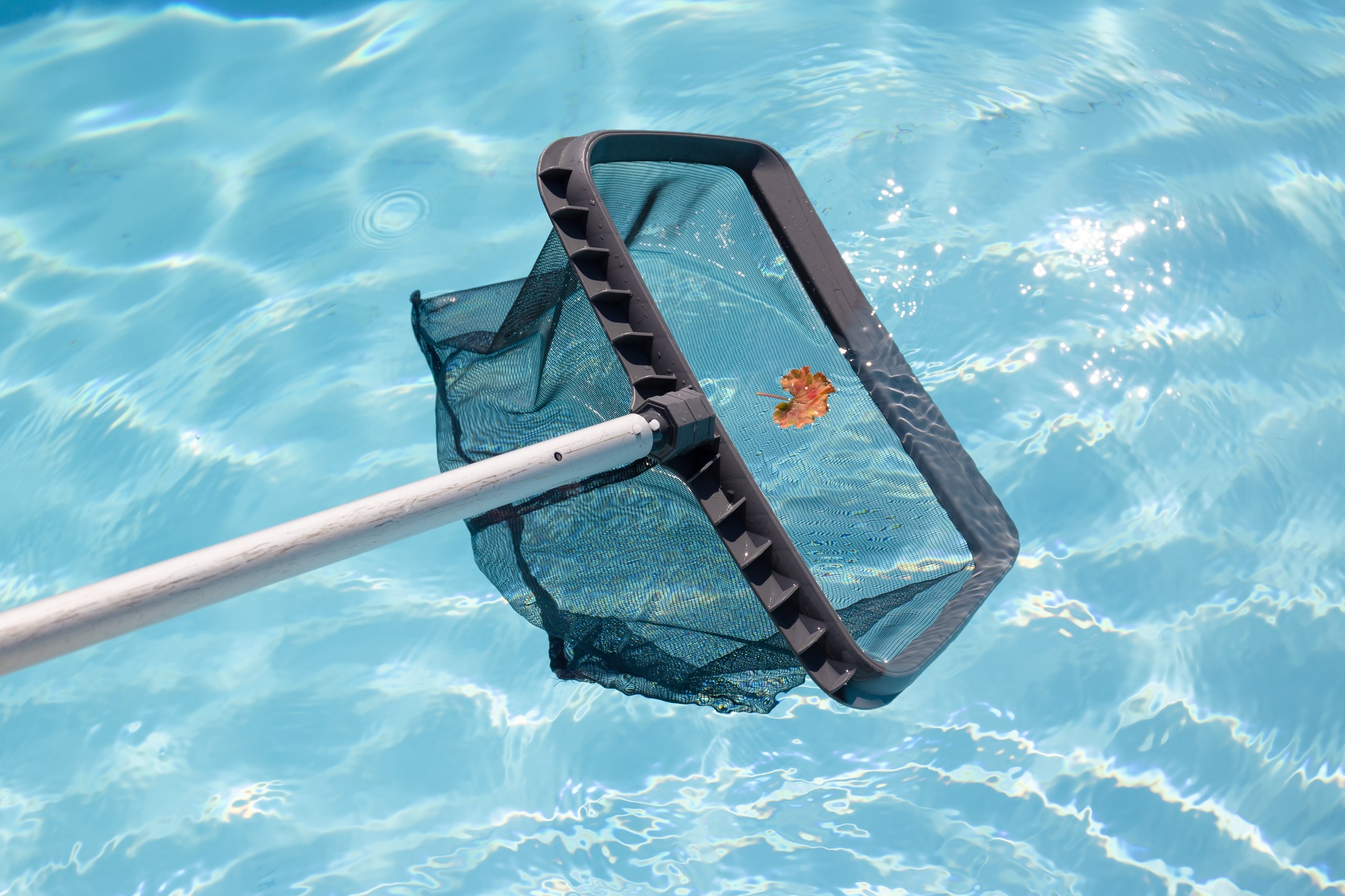
Building a customer base is essential for your small business. Focus on effective strategies to attract and retain clients for your swimming pool cleaning venture.
Identify Your Target Market
Conduct thorough market research to assess the demand for pool cleaning services in your area. Concentrate on regions with a high density of pools, like suburbs and gated communities. Segment your market by pool size, income level, and lifestyle. This tailored approach enables you to create targeted marketing messages that resonate with potential customers.
Customer Segmentation
Categorize your customers into specific segments, such as residential and commercial. Applying this segmentation allows you to develop specialized service packages that meet the unique needs of each group. Tailored offerings increase customer satisfaction and enhance your reputation, driving repeat business and referrals.
Marketing Strategies
Implement diverse marketing strategies to reach your audience effectively. Utilize digital platforms such as social media, Google Ads, and email marketing. Create informative content about pool maintenance that establishes your expertise in the field. Offer promotions to attract new customers, reinforcing your brand’s visibility and credibility.
Networking with Pool Companies
Build relationships with local pool companies and professionals. Attend industry events and trade shows to connect and collaborate. Such networking can lead to referrals and partnerships, expanding your reach within the community. Consider joining local business associations to enhance your credibility and access additional resources for growth.
By focusing on these strategies, you can successfully build a customer base and establish a thriving swimming pool cleaning business.
Setting Your Pricing Structure
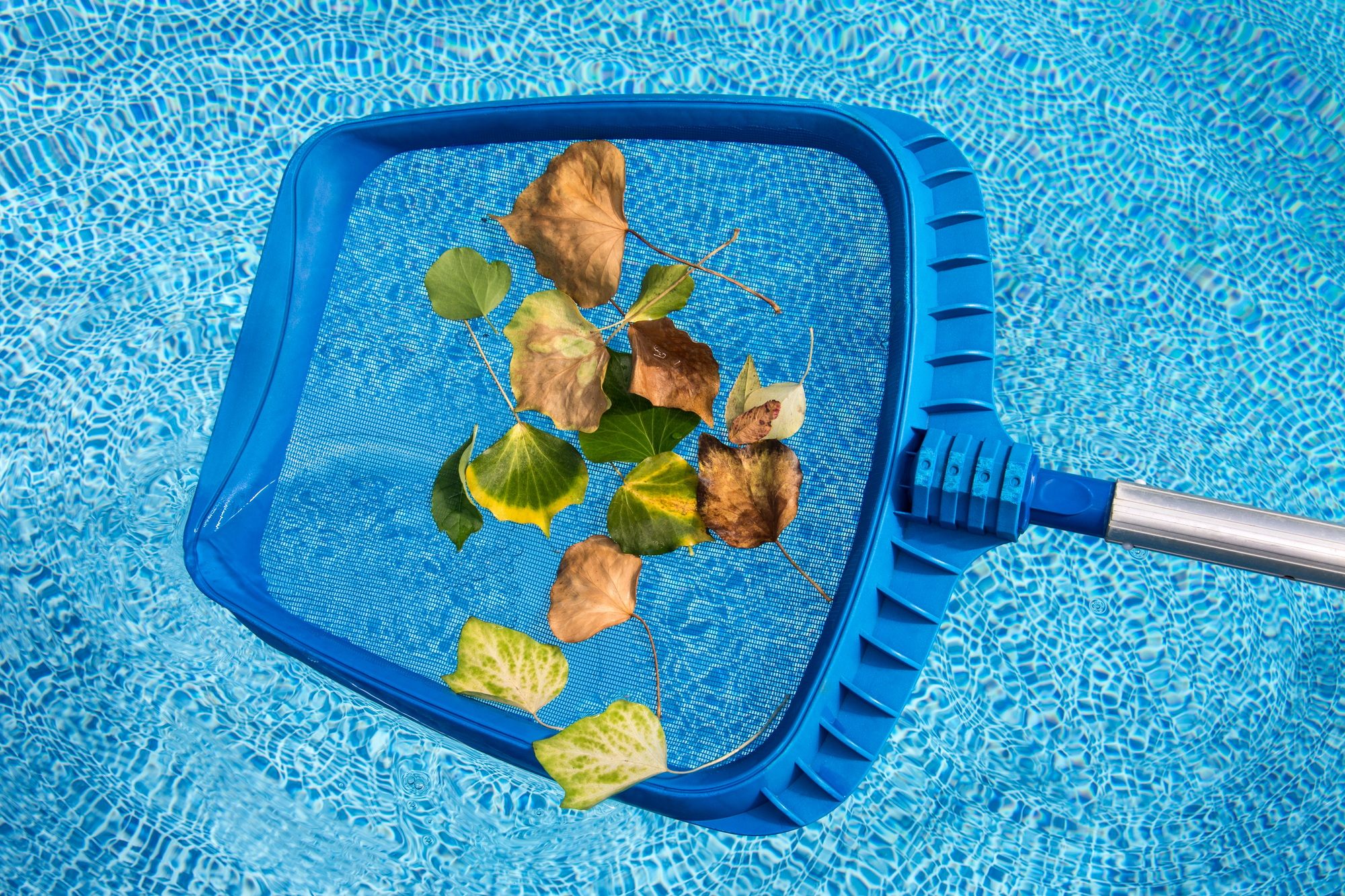
Setting an effective pricing structure is crucial when you’re starting your swimming pool cleaning business. You’ll want to ensure that your prices are competitive while covering your costs and ensuring profitability.
Competitive Pricing Analysis
Conduct a competitive pricing analysis to gauge the market in your area. Identify local competitors and assess their service offerings and pricing models. For example, if your competitors charge between $70 and $100 for pool cleaning, position your prices strategically to either align with or slightly undercut theirs, depending on your service quality and reputation. Monitor seasonal demand fluctuations as well; prices may vary during peak swimming months. Evaluate customer feedback on pricing to understand what clients value and adjust accordingly.
Discounts and Packages
Consider offering discounts and packages to entice new clients and foster loyalty among existing customers. For instance, provide a 10% discount for first-time customers or create service packages that bundle regular maintenance with additional services, like water testing and chemical balancing. Offering a referral discount can also motivate satisfied customers to spread the word about your business. Structuring these discounts effectively can increase your customer base while encouraging repeat business, essential for a small business startup.
Conclusion

Starting a swimming pool cleaning business can be a rewarding venture that taps into a growing market. With the right knowledge and tools you can position yourself for success. Focus on understanding your local market and tailoring your services to meet customer needs.
Investing in quality equipment and maintaining high standards will help you build trust and satisfaction among clients. Don’t overlook the importance of legal compliance and proper insurance to protect your business.
By implementing effective marketing strategies and competitive pricing you can attract and retain customers. Embrace the journey ahead and watch your business thrive in this lucrative industry.
Frequently Asked Questions
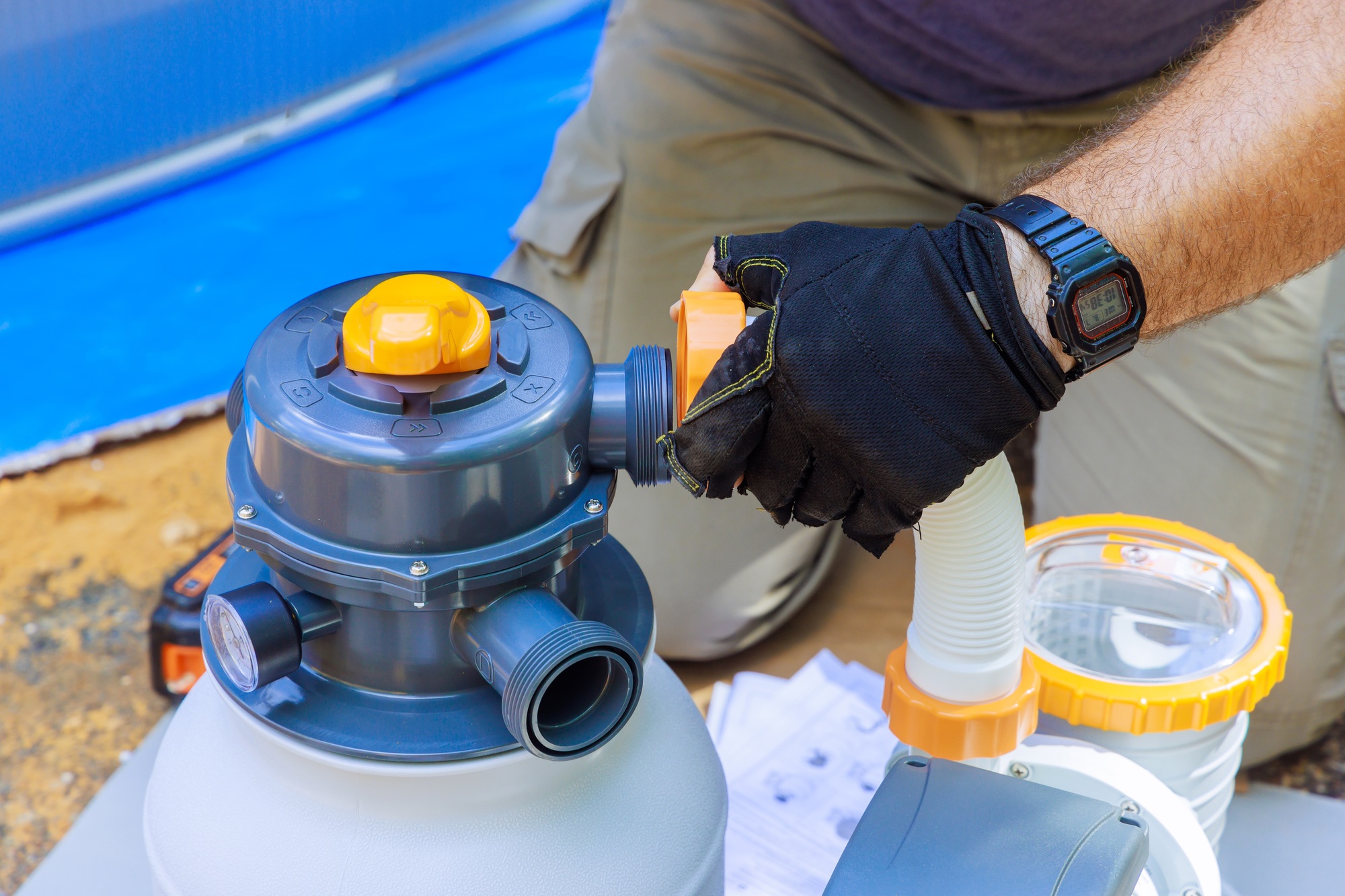
What is the demand for swimming pool cleaning services?
The demand for swimming pool cleaning services is increasing, driven by the rise in residential and commercial pools across the U.S. With over 10.4 million residential pools, the need for regular maintenance is growing, especially during warmer months.
What services can I offer in a pool cleaning business?
In a swimming pool cleaning business, you can offer regular maintenance, one-time cleanings, repairs, and swimming pool inspections. Tailoring your services based on market needs and your expertise can help attract clients.
What equipment do I need to start a swimming pool cleaning business?
Essential equipment includes pool skimmer nets, brushes, vacuums, telescopic poles, and water quality testing kits. Having the right tools ensures effective maintenance and boosts customer trust and satisfaction.
What legal requirements should I consider?
You must understand business licensing requirements and insurance needs before starting a swimming pool cleaning business. This includes obtaining necessary licenses, such as a contractor’s license, and securing insurance coverage to protect your business.
How can I build a customer base for my pool cleaning business?
To build a customer base, identify your target market, focusing on areas with many pools. Use tailored marketing strategies, network with local pool companies, and leverage digital platforms to enhance visibility and attract clients.
How should I price my pool cleaning services?
When pricing your services, conduct a competitive analysis of local rates and adjust your prices accordingly. Consider seasonal demand, and offering discounts or service packages can also help attract new clients and encourage loyalty.
Image Via Envato



